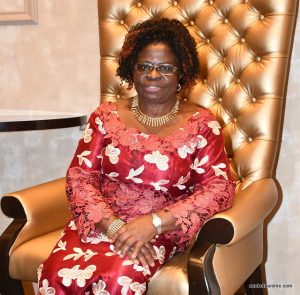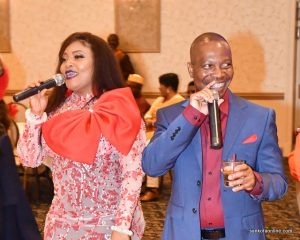
Ms. Caroline Amexo Ewe Association of Chicago President
Mr. Steve Dei and Ms. Mawusi Kudkawu
CEANA Rep
On the occasion of CEANA’s 20th anniversary, it is necessary to revisit the presentation of its history from a different perspective, the Chicago Perspective! A historical narrative of CEANA has been beautifully written by two outstanding members of our Ewe community of North America, Mr. Gordon Sabblah and Mr. Cudjoe Dorkeno. Their rendition has covered all relevant aspects of CEANA’s formation, however, gaps in the genesis of CEANA’s history, often ignored and yet significant, must be inserted to complete the documentation more accurately, which is the intention behind this write-up, “Tracing the Beginning History of CEANA”. Several years ago, beginning in the early 90’s, there was a great deal of camaraderie among us, Ewes in North America. We would travel by road when invited to Washington DC, New York or Atlanta to attend funerals or outdoorings. It was therefore no wonder that in 1993, at the invitation of the Volta Club of Washington D.C., to their 10th anniversary celebration the idea of Ewes in North America unifying under one banner to help with the socio-economic development of Eweland was launched. This idea was started at an evening welcoming cocktail and dinner reception, hosted by Mr. William Ayenson in his home to welcome those of us who had travelled from afar to Washington D.C. for the 10th anniversary celebration of the Volta Club of Washington D.C. At this cocktail and dinner reception, after the usual exchanges of greetings, pleasantries, and other social conversations about several innocuous issues, the discussions focused on the economic devastation in Ghana at the time, and the Volta Region in particular. There were no visible economic or industrial infrastructures in existence in many areas of the Volta region. Young kids who had left school could not find jobs, resulting in most migrating to Accra, the capital city of Ghana in search of non -existent jobs, thus putting tremendous pressure on the government. We talked about how lucky some of us in the Diaspora were despite our individual struggles for economic survival. The realization then sank in that despite our individual economic struggles, our situation relative to those at home was better and thus a need to share our good fortune with those at home.




